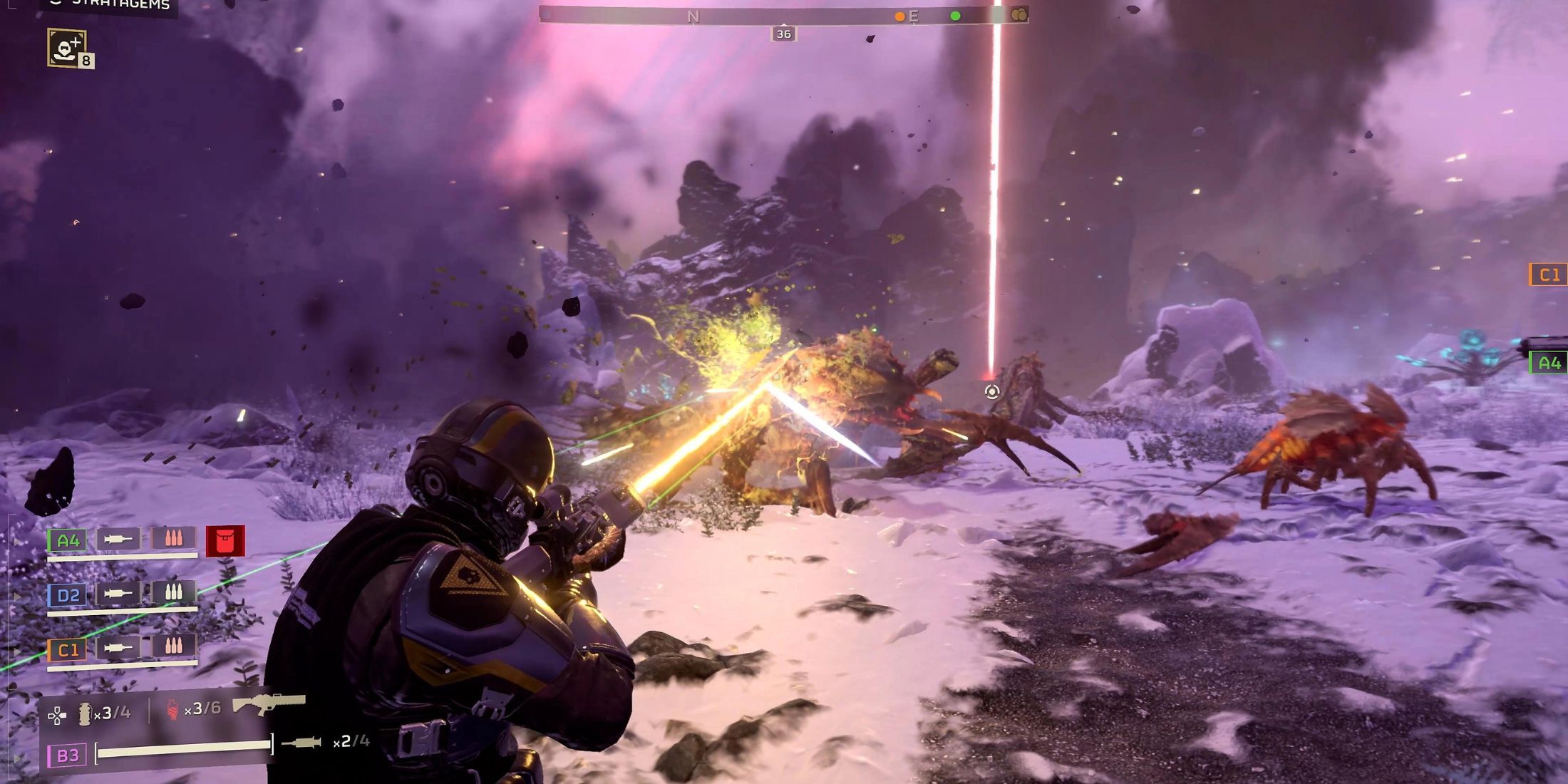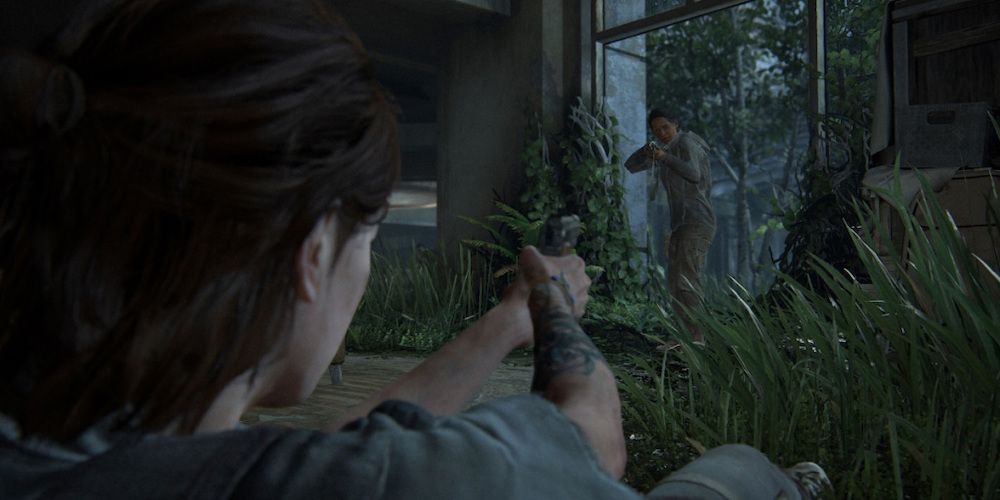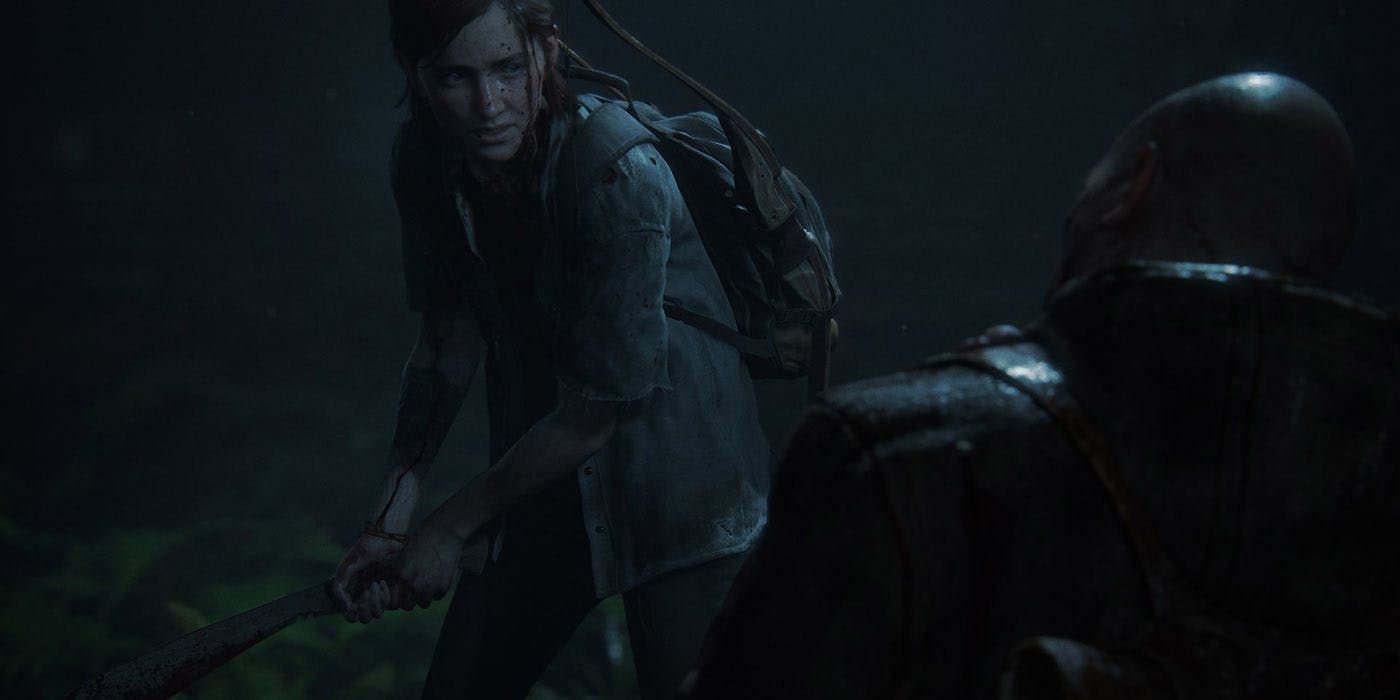The Last of Us 2 will go down in history as one of the PS4's defining games. It's a profoundly amazing accomplishment, portraying a harsh world with a cast of rich characters, most of which are given enough time in the spotlight to create real connections with players – a feat that many games are unable to accomplish.
While The Last of Us 2's combat is visceral, grounded, and energetic, it fails to solve an issue that games have battled with since the beginning: killing. When presented with enemies as obstacles, players are often forced to solve those problems with violence, a singular solution that has plagued video games since their inception. At best, it's a problem, and at worst, it undermines a game's narrative — which is the case with The Last of Us 2.
Warning: Full story spoilers for The Last of Us 2 below.
Throughout The Last of Us 2, Ellie's drive to find and kill the people responsible for Joel's death gradually increases, and while the motivation for that drive is understandable, it's hard to argue that Ellie is a bad person when the game kicks off. On the other side of the spectrum, the WLF, or "Wolves," are portrayed as aggressors — the walls around Seattle threaten to shoot travelers on sight, and a group of them journeyed to Jackson specifically to kill Joel.
However, The Last of Us 2 makes a point of putting players in the shoes of Abby midway through the game, revealing that Joel was responsible for the death of Abby's father during his rescue of Ellie in the first Last of Us. Naughty Dog then spends hours humanizing the group that hunted down and killed Joel, and they do so masterfully.
Take, for instance, Owen, Abby, and Mel, a love triangle that Last of Us 2 invests time into fleshing out during Abby's chapters. Before jumping into Abby's shoes, however, players kill Owen and Mel in an aquarium. Immediately afterward, Ellie discovers that Mel was pregnant, and quickly breaks down after realizing what she had done.
It's one of the game's darkest moments, and it's clear how troubled Ellie is after killing Mel. Players also see Manny, a likable character and another one of Abby's friends, suddenly shot in the head by Tommy, Joel's brother. It's an immediately affecting incident for Abby, and highlights one of the games major underlying messages: quests for revenge only lead to more damage, and The Last of Us 2 is full of revenge.
Much of the game is spent going blow for blow, Abby's friends kill Joel, Ellie kills Abby's friends, and so on until the end of the game, where, finally, someone decides to simply walk away. In a way, that gives increased weight to the other deaths throughout the game. The suffering was for nothing, and had Ellie let it go earlier on, countless lives would have been saved.
This ending, and the game as a whole, serve a purpose. Players should feel guilty for robbing so many people of their lives, after all, everyone involved was innocent depending on perspective. One of the beautiful things about the game, as mentioned in Game ZXC's Last of Us 2 review, is that it's an experience players have to reflect on after playing, and doing so often leads to conflicting viewpoints about the morality of the situation.
Outside of scripted narrative moments, though, The Last of Us 2 sherpas players through a variety of combat encounters. Players are free to tackle problems in a variety of ways, but things to devolve into firefights a lot of the time. This is where a fundamental problem arises. The Last of Us 2 makes a point of humanizing killing in a way most games aren't brave enough to do, giving each enemy a name and forcing players to kill dogs, each with their own relationship to one another.
However, combat, fundamentally, is fast-paced and fun. Flawlessly executing a multi-step plan quickly and efficiently feels good; it's a rush not found in many other games. That's true for a few different reasons, largely stemming from how scarce resources are. Lining up multiple headshots one after another not only looks cool, but players are rewarded for their skill by using fewer bullets, which are, at times, hard to come by – especially when playing on higher difficulty settings.
But Last of Us 2 tries desperately to humanize its characters, even cannon-fodder NPCs. As players weave through various chapters, gunning down enemies, they'll often here their enemies yell things like "They got Bill!" Not to mention, players will often hear banter between enemies while sneaking by them, typically small talk about their personal lives. The point is to try and establish NPCs as people in the few brief moments before the fighting starts, giving more weight to each death that happens on screen.
That guilt is often overridden by the rush that comes from the game's combat, though, which makes the message feel like it's for nothing, Ellie just slaughtered a dozen people with lives, relationships, and names, and players should feel bad about it, but it's harder to connect the violence on-screen with feelings of guilt when players feel good after committing such heinous acts.
The exception here is Last of Us 2's inclusion of dogs, which players are frequently forced to kill. Culturally, people are inclined to see dogs as companions, and when owners cry out for their lost dogs, players will likely feel remorse for what they've done. If that feeling could be replicated for other NPCs, The Last of Us 2 would be an even deeper, even darker experience. And better yet, it wouldn't undermine its own narrative.
It's a difficult spot to be in. Making combat less fun isn't a sound solution, and when players are expected to take down groups of enemies regularly, establishing connections with all of them is impossible. It falls back under "ludonarrative dissonance," a term used to describe the conflict between what's happening during gameplay versus what's happening during the story. Ellie feels guilt for killing Mel due to her pregnancy, but with the countless other NPCs Ellie kills, one of them is bound to be pregnant too, so where's the remorse for that?
The Last of Us 2 is still an incredible game, rightly deserving of the praise its received, but it's issue between gameplay and story highlights a problem games have had for years. There haven't been meaningful solutions yet, but it's a problem that developers are slowly inching towards solving.
The Last of Us 2 is available now for PS4.






